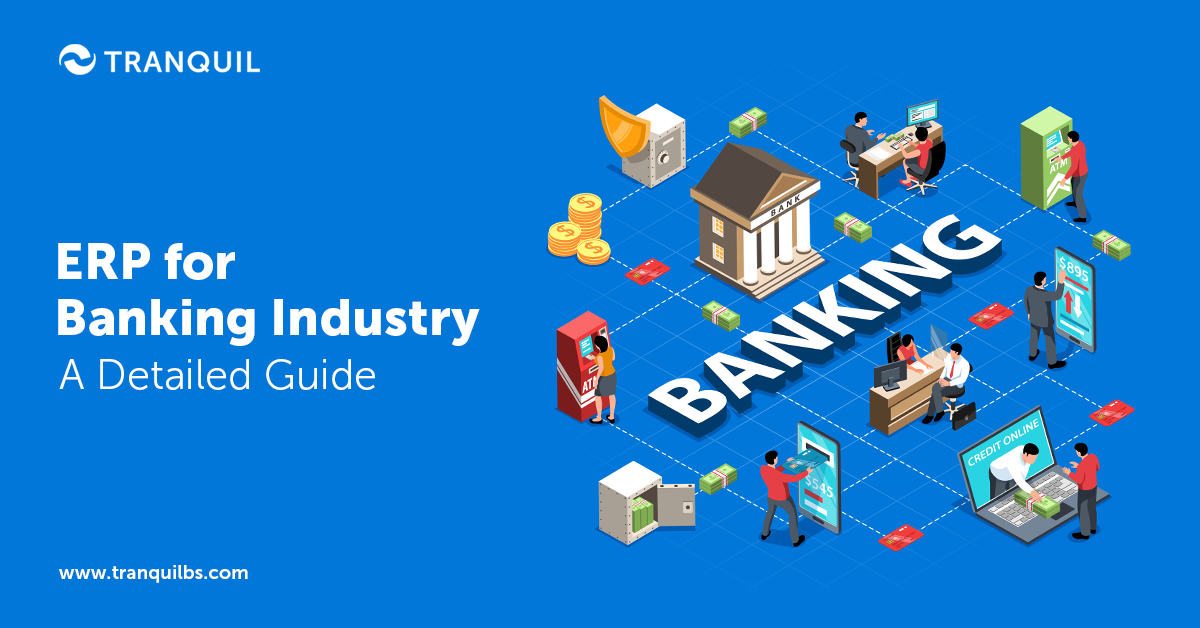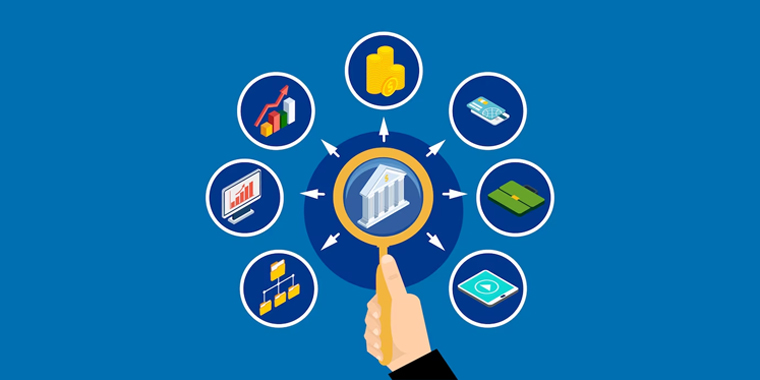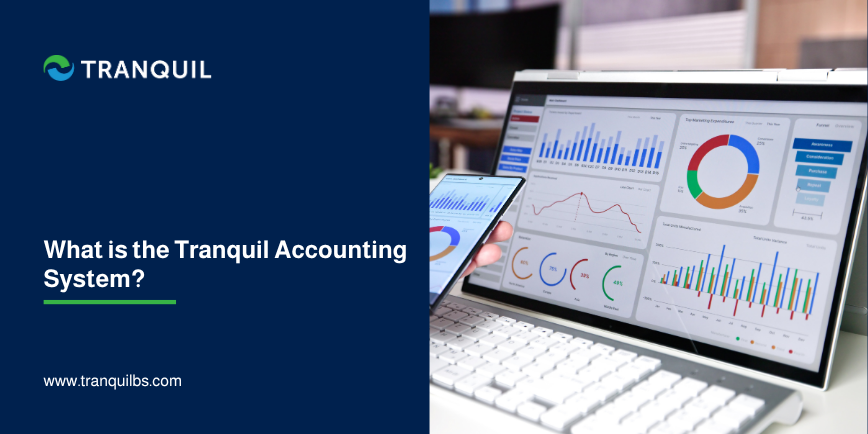
ERP for Banking Industry- A Detailed Guide
Enterprise Resource Planning is a software tool that is revolutionizing the way businesses function in every industry across the world, and the banking sector is no different.
Banking operations have undergone a sea-change thanks to consumer expectations, and software is a major factor facilitating the change.
What is an ERP for Banks?
ERP for banking industry delivers effective and reliable methods of managing the entire operation by collecting data from all departments.
It gives managers a comprehensive view of the present scenario and enables banks to be more agile, boost efficiency, and fulfil customer demands.
ALSO READ: Benefits of Bank Reconciliation in Accounting
What is Core Banking?

Core banking connects all the branches of a bank so that loan management, deposits, withdrawals, and payments can be conducted in real time from any branch regardless of where the customer’s account exists.
It allows the customer to interact with the bank as one entity no matter the location.
This adds convenience for the customers, and offers independence in terms of using their accounts and funds from anywhere they want.
Undoubtedly, this can only be facilitated by advanced technology.
ERP in banking is very effective for finance, accounting, and planning.
Systems already being used by the bank – core banking and other back-office systems for example – are integrated with ERP for greater ease of operations and efficiency.
ALSO READ: How Do ERP and Cloud Computing Differ?
Essential Modules for Banking ERP
Any ERP solution has modules like procurement, HR, finance, production, project management, and so on, which are common to businesses in all industries.
However, the banking sector needs some specific modules which we will talk about below.
1. Asset Management
This is crucial, as customers’ physical assets have to be tracked and monitored by the bank.
It helps to eliminate loss of money and assets and be more efficient in managing them.
It may be necessary to connect different areas together to effectively manage the bank’s assets.
By tracking the life-cycle of the assets from acquisition to retirement or disposal, the bank can know where its assets are at any given time.
Tranquil ERP’s powerful asset management module also helps in scheduling regular servicing and maintenance checks that help keep the asset in top operational condition, and extends its life as well.
ALSO READ: Benefits of Asset Management Software
2. Analytical Accounting
This is vital in banking ERP as it connects all activities with regard to revenue and expenditure.
It is mainly responsible for accounts receivable, accounts payable, and the general ledger, and manages all the transactions and financials of the bank.
It also supports managing the payroll, tax calculation and reporting, and tracking time.
A robust accounting module helps banks to maintain accurate information, and prevent fraud and manual errors.
3. Payment Management
This helps to take care of customer funds in various accounts.
It helps to manage payment approvals encoding, monitoring forex conversions during international transactions, and so on.
ALSO READ: Common Accounting Challenges
Benefits of Using ERP System in Banking

Banking ERP like Tranquil offers several benefits for both banks and customers.
Let’s take a look at the most impactful benefits:
1. Data-Driven Intelligence
Bank managers can get real-time intelligence and offer customers personalized experiences.
The AI embedded in ERP can help them leverage data to analyze customer behavior and needs.
This allows banks to fulfil customer needs and keep them happy.
This increases customer trust and loyalty significantly.
2. Improved Processes
ERP software automates cumbersome manual tasks and streamlines processes, helping to deploy smart, optimized workflows that make the overall operations more efficient.
ALSO READ: Important ERP Implementation KPIs to Know
3. Increased Efficiency, Collaboration, and Better Decision Making
All processes are centralized on a unified central platform, making data access easy.
In fact, ERP facilitates smooth sharing of information and greater collaboration across the organization – even with teams working remotely or offshore.
It also provides detailed, varied, and automated report generation.
The chief metrics can be seen on the central dashboard, providing managers with much needed insights.
With all departments on the same page and accessing the same relevant information, it leads to much better decision making.
ALSO READ: How AI transforming ERP?
4. Live Supervision
Banks have to supervise and handle multiple live operations like digital wallets, ATMs, cash accounting and so on.
ERP systems are flexible and capable of being integrated with other systems, enabling the supervision of such live bank operations.
5. Increased Security of Data
ERP systems like Tranquil are usually cloud based, and have numerous security provisions like robust firewalls and multi-step authentication to minimize the risk of data breach.
A centralized database is easier to monitor, and access restriction (of retired or terminated employees) can be implemented quicker.
Admins have excellent visibility to the system, enabling them to identify attempts of unauthorized access or other suspicious activities almost instantly.
6. Reduced Operational Expenses
ERP software helps in reducing expenses and overheads associated with operations – allowing you to have a leaner budget.
Banking ERP streamlines every process, monitoring them closely to thwart or quickly rectify operational disturbance or downtimes.
Potential issues are identified and fixed before they can cause big damage, and thereby cuts operational costs.
ALSO READ: What is Landed Cost and How to Calculate It?
7. Multi-currency Management

Tranquil ERP software supports multiple currencies and languages, enabling banks to operate smoothly in several countries and perform international transactions.
This also helps users get live updates on rates of currency transaction, support currency exchange, handle international customer accounts, and so on.
It is especially useful for customers who hold multi-currency accounts, as one account can be used to transact in multiple currencies.
It eases the uses of electronic payment methods, and helps to offer the use of their preferred currency to invest and transact, delivering convenience to customers and keeping them happy.
ALSO READ: Debit Note vs Credit Note
8. Real-time Transactions
In an ERP system, everything is recorded and displayed in real-time – so you can say goodbye to delays.
Withdrawals, online payments, deposits – any transaction – is recorded in the ERP system.
Transactions conducted by customers from anywhere are instantly updated.
Automated records management and generation of invoices, properly designed (and automated) invoices and so on, help to reflect the bank’s operational status.
In addition to recording transaction details, ERP software helps in generating and communicating monthly statements easily, accurately, and quickly.
ALSO READ: Common HR Mistakes and Tips to Avoid Them
9. Saves Time
Tranquil ERP saves you precious time, with a one-stop solution that lets you manage all of your transactions in a very short period of time.
With its project management module, you can easily schedule tasks for your employees, manage shifts, and allocate roles effortlessly.
It also helps to ensure that you meet your deadlines and completes tasks and projects within the allocated time and budget.
10. Financial Insight and Regulatory Compliance
ERP in banking sector enables banks to try out new models of finance and business, and help them comply with regulations and laws both domestic and international.
After all, as a financial institution, a bank has to comply with several industry rules and government regulations.
Tranquil incorporates the regulatory standards and helps banks to comply with the stringent regulatory compliance requirements.
This makes ERP solutions not just an option but a necessity for more efficient management, but aligned with the needs of security and authority.
ALSO READ: What is Asset Depreciation and Why is it Important?
How Does an ERP For Banks Help the Bank Find New Business?

ERP systems continuously collect data from all departments, analyzing them and providing valuable financial insights.
This helps bank managers to reduce risk and maximize ROI.
As ERP collects and assembles the information speedily, it decreases the time and cost associated with developing new financial products.
It can also be used to deliver personalized, improved customer service to increase their happiness and loyalty.
Happy customers become advocates for the business and are highly likely to recommend the bank to friends and family.
ERP solutions are valuable not just for banks but for all types of financial institutions.
The real-time information provided by ERP software enables the organization to be more efficient, cut costs, work faster, and be more competitive in the market.
ALSO READ: What is Delivery Performance and How Can it be Improved?
Limitations to ERP in Banking

As with everything, there are certain limitations or drawbacks of ERP for banking.
It is up to you to weigh the benefits against the limitations and take an informed decision.
- Implementing the solution in multi-branch banks can take a long time; also, it is desirable that the organization is at a certain level of maturity to implement ERP so that it can be planned and executed more efficiently.
- There can be opposition towards moving to a new system within the organization. Most people don’t want to step out of their comfort zone, and change the way they work. ERP software necessitates a change in the way banking operations are carried out. It is recommended that you talk to your employees and involve your main specialists in the decision-making process from the outset to make the process simpler, and have people who will support you at the lower management rungs itself. It will help to create an eagerness to learn rather than arouse fear and suspicion in a new system. You can conduct training sessions that will help your teams get accustomed to using the new system, and can adjust the sessions according to seasons of peak activity so that your main work does not get disrupted.
ALSO READ: Benefits of Implementing ERP for Oil and Gas Industry
- Being part of the Finance sector, it is highly likely that security and compliance requirements may change in the middle of implementing the ERP software. This could necessitate some extra work, expense, and training. Some updates may automatically be included with the new system too. In any case, it is crucial for banks to be continuously up-to-date with security and compliance regulations.
To Wrap Up
As in any new system, minor irritations and challenges are bound to be there.
However, ERP is essential for the banking industry, as it significantly helps to improve security and overall efficiency, and can be a huge asset when it comes to having an edge over your competition.
The advantages certainly outweigh the limitations by a vast margin.
The financial outlay that you may be required to make in the outset, will be offset by the cost savings you can achieve in the long run.
ALSO READ: Important ERP Modules and Functions
ERP solutions like Tranquil help you boost productivity and take your operations to the next level. If you’re still unsure about the necessity or effectiveness of ERP for your bank, simply schedule a FREE demo of Tranquil ERP. We are pleased to answer all of your questions!



